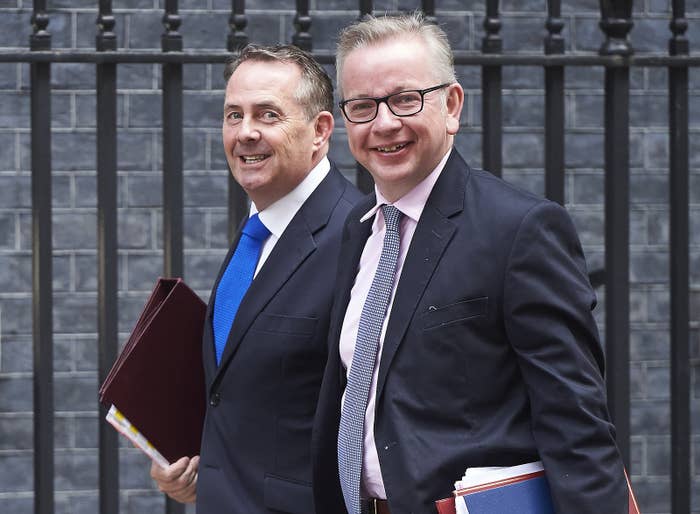
Michael Gove has said he would not allow chlorine-washed chicken into the UK as part of a trade deal with the US.
Speaking to the BBC's Today programme on Wednesday, the environment sectretary ruled out selling chemical treated chicken in Britain, adding: "We are not going to dilute our high animal-welfare standards or our high environmental standards in pursuit of any trade deal."
"We need to be in a position as we leave the European Union to be leaders in environmental and in animal-welfare standards," he said.
Gove's answer was in stark contrast to comments made by the trade secretary Liam Fox, who has been in the US to start talks about a future trade deal after the UK leaves the EU.
Fox is said to be irritated by what he calls a media "obsessed" with "chlorine washed chickens" and has refused to rule out including it in any future trade deal, saying it was "too early" to go into specifics of a future deal.
Chlorine is used to treat raw chicken meat to kill bacteria and is said to be safe to eat, but some campaigners argue this can drive down hygiene and welfare standards during rearing and production.
As BuzzFeed News reported in February, the biggest US farm lobby group sees the post-Brexit UK as an "opportunity" for food currently banned under EU rules.
The American Farm Bureau Federation, the main industry body, told BuzzFeed News it was lobbying trade negotiators in the hope that Brexit opens the UK to its products.
The group said US farmers wanted a chance to compete in this country, describing consumers' distrust of modern farming technologies as "irrational".
The UK adheres to strict EU standards on food imports that currently do not allow certain US products – including chicken treated with chlorine, and beef treated with hormones. Those rules will be up for negotiation once the UK leaves the EU.
The National Farmers Union, alongside other industry groups in the UK, has said it fears that changes could "undermine the high standards that British farmers are proud to produce food to".
